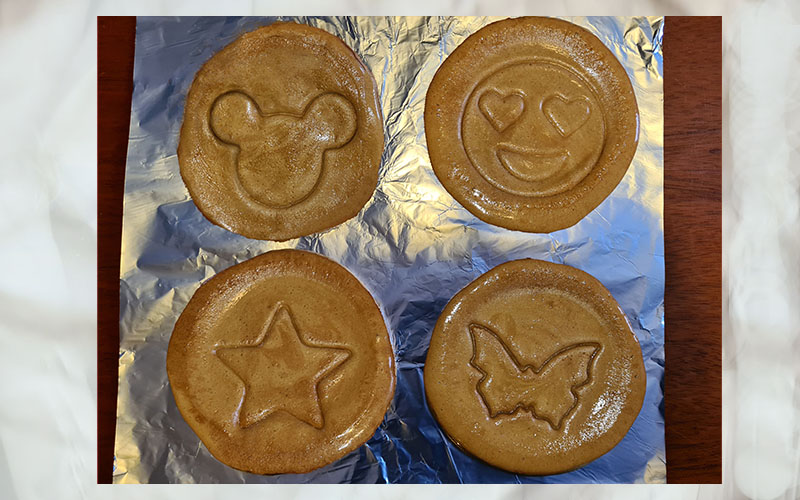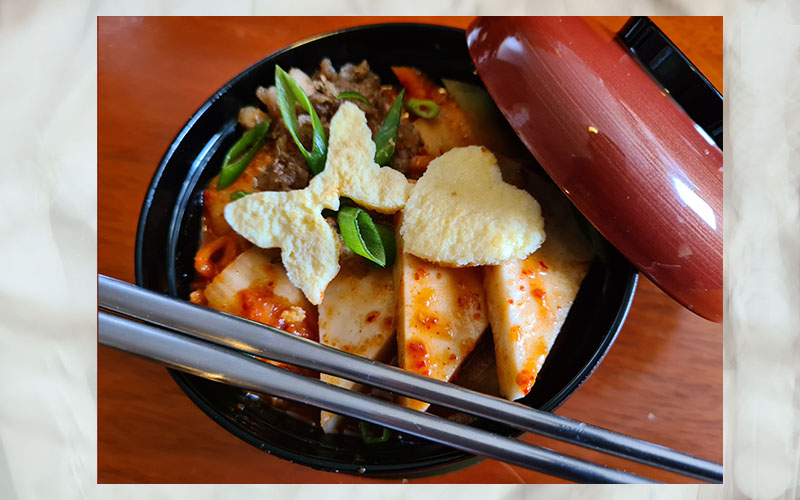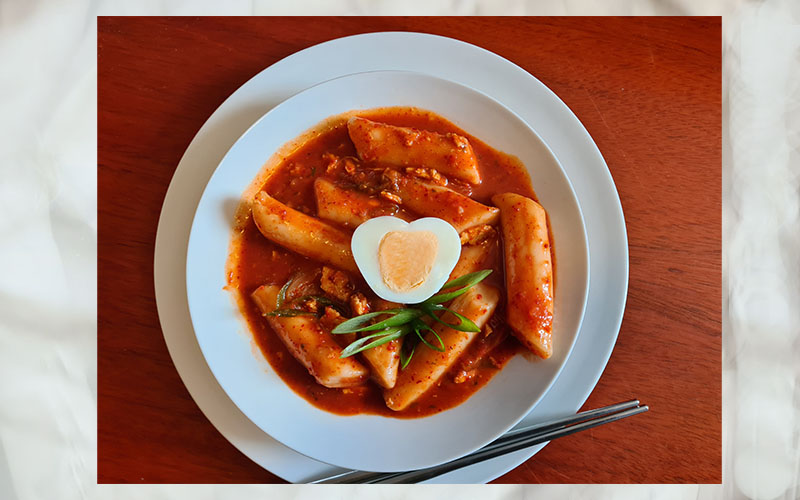- 한국어
- English
- 日本語
- 中文
- العربية
- Español
- Français
- Deutsch
- Pусский
- Tiếng Việt
- Indonesian
By Honorary Reporter Cheryl Sun Han Hagen from U.S.
Photos = Cheryl Sun Han Hagen
The Oxford English Dictionary's addition of Korean words reflects the global rise of Korean culture.
With its designation of the term "Korean" in 1933, the dictionary included the words "kimchi" in 1976 and "K-pop" in 2016. In its September 2021 update, 26 more were added including galbi (grilled ribs), Hanbok, Hallyu and unni (eonni) meaning "older sister."
The December 2024 update featured seven more: dalgona, (honeycomb candy), hyung, aka hyeong (older brother), jjigae (stew), maknae (youngest sibling), noraebang, (karaoke room), pansori (traditional lyrical opera) and tteokbokki (spicy rice cake).
To celebrate this, I embraced my inner Korean foodie and made dalgona, jjigae and tteokbokki.

My version of dalgona (honeycomb candy)
I had never made dalgona before, even after its surge in popularity from "Squid Game." Without the usual equipment, I improvised with what I had at home.
My first few attempts ended in burned sugar, turning everything black. I then either waited too little or too long for the mixture to cool, resulting in a sticky mess or something too hard to mold. After using 1 kg of sugar in several tries, I finally got it right.

I used my own recipe to make my first kimchi jjigae (stew).

My homemade version of tteokbokki (spicy rice cake)
I first tasted tteokbokki in 2019 when Korean friends took me to Jayang Market in Seoul and introduced me to Korean street food. I was overwhelmed by all the choices but tteokbokki is what stood out.
This street food, once a royal dish during the Joseon Dynasty, is widely available across Korea or makeable at home. Remember to soak tteokbokki in water to soften it.
msjeon22@korea.kr
*This article is written by a Korea.net Honorary Reporter. Our group of Honorary Reporters are from all around the world, and they share with Korea.net their love and passion for all things Korean.